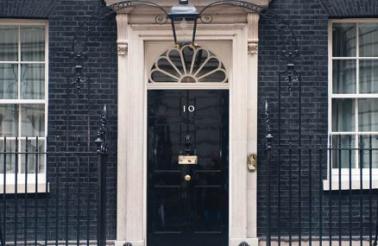Kirsty Weakley looks at what experience the two candidates to be the next Prime Minister have of the charity sector.
Yesterday Theresa May and Andrea Leadsom became the final two Conservative leadership candidates, and one of them will be the next Prime Minister by early autumn.
But where do the pair stand on issues relating to the charity sector? And what should charities know about them?
Andrea Leadsom
Let’s start with Leadsom. On the surface she has stronger ties to the charity sector. She founded one and was a trustee until recently. She mentions this frequently in Parliament. Though it is just about the only charity she’s mentioned in her six years as an MP.
She set up Parent Infant Partnership UK as an umbrella group to spread the model of a local charity she had been a trustee of, and which provides support services to new parents to help them bond with their babies. Leadsom stood down as a trustee in December 2014 and its current chair is the MP Tim Loughton, who was yesterday leading the pro-Leadsom rally outside Parliament.
PIP UK’s main grant comes from the Ana Leaf Foundation, a Jersey-based grantmaker run by Leadsom’s sister, Carolynne Hayley de Putron, and bankrolled by her brother in law the hedge fund manager Peter de Putron.
This hasn’t been declared in the charity’s accounts, which is not great from a transparency point of view. But we’ve checked with the Charity Commission and it says it has no concerns about the charity.
Leadsom has also been connected to a Ugandan ‘gay cure’ charity, through a school exchange project she supported. In 2013 she described the Discover Centre as a “fantastic youth centre”.
During her spell as economic secretary to the Treasury she hosted a round table discussion on the issue of banks withdrawing services to international aid charities. At the time she said: “Because this problem is a global trend with global causes, there is a clear need to progress work the UK government has kick-started at a global level. We will continue to lead international efforts to prioritise work that addresses this issue; building on successes at the G20, Financial Action Task Force and Financial Stability Board.”
In Parliament she has also criticised the Charity Commission during its dispute with the Plymouth Brethren, saying “Where we can, we in Parliament should take steps to ensure that there is not an increasing tendency to challenge the very existence of faith-based organisations.”
In 2010 she also seemed concerned that charity shops may have a surplus of stock, saying in a Finance Bill debate that: “I want to make a point about pushchairs, prams, car seats and cots. To my certain knowledge, from having been involved for a long time with a charity that works closely with families and their babies, there is a surplus of those items in charity shops. People refuse to purchase or even to accept them.”
Theresa May
May has not been that vocal on charities and does not appear to have been a trustee of one. Her website says she is a “patron of several local charities” including a children’s hospice and an arthritis organisation. But as part of the government she was a vocal supporter of the Big Society initiative.
As Home Secretary since 2010 she has clashed with a number of charities. The proposal to scrap the UK’s Human Rights Act and leave the European Convention on Human Rights has been widely condemned by advocacy groups such as Amnesty International.
She’s also led on the government’s counter terrorism strategy, which has included promising more support to the Charity Commission to help it tackle extremism.
May has rarely mentioned charities in Parliament and when she does it relates to her work as Home Secretary by drawing on evidence from visits to charities or research to support her point of view.
It potentially worth noting that in 2005, when she was the shadow secretary for culture, media and sport, she spoke against the National Lottery Bill, fearing that it will “the Big Lottery Fund will be subject to far greater direction from the government” and saying “we must not allow it to become the government's milk cow, to be milked by ministers at will”.
What does this mean for the sector?
Frankly at the moment very little. At the moment both candidates will be concentrating on winning support from Conservative members, and until one emerges victorious there is likely be a lot of navel gazing and pandering to grass-roots instead of considered engagement with the sector and sensible policy proposals.
But whoever Prime Minister it seems that neither has much experience of the voluntary sector. They will need a lot of help to understand its complexity, diversity and idiosyncrasies. This means it will be up to charities and representative bodies to make sure they’re voices are being heard properly at the top levels of government.









